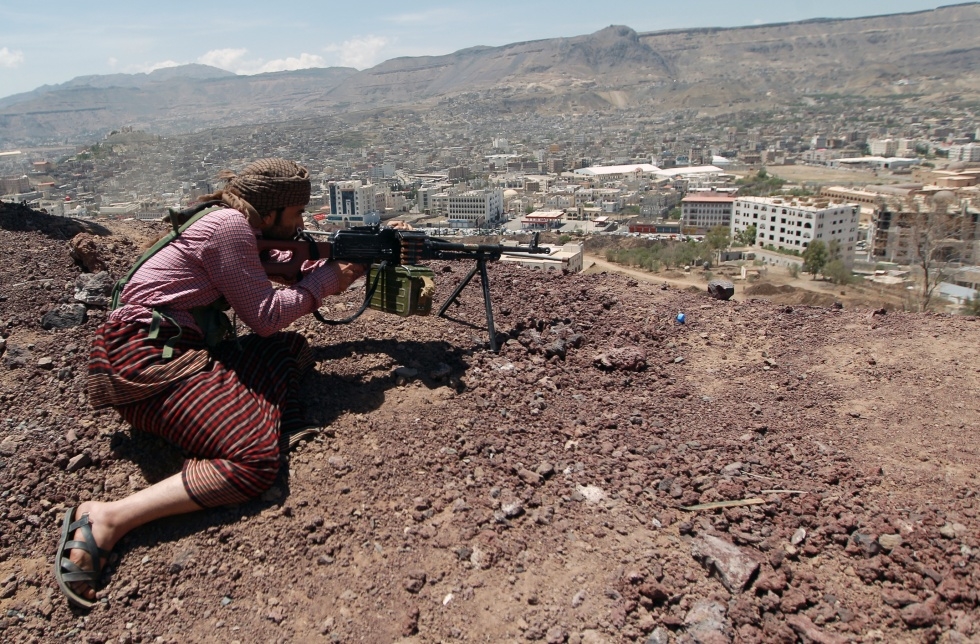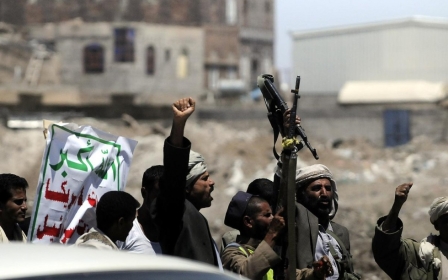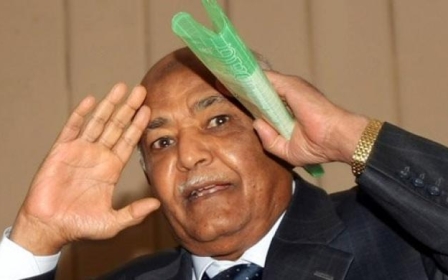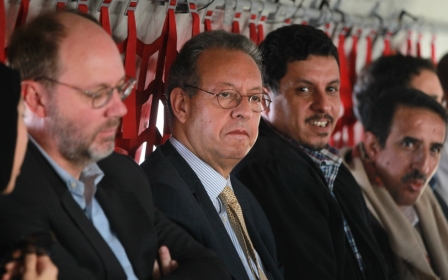Houthi rebels in rare clash with Al-Qaeda in south Yemen

Shiite rebels who descended from northern Yemen to seize parts of Sanaa have clashed with Al-Qaeda-linked militants hundreds of kilometres south of the capital, a US monitor said Monday.
The rare clashes between the Houthi rebels and militants from the Al-Qaeda affiliated Ansar al-Sharia occurred over the weekend in the town of Al-Dali, SITE Intelligence Group said in a statement.
Numerous sources have also reported that a explosion in Sada’a in the north of the country, killing an unknown number of Houthis, was a bomb set by the group
The fighting broke out on Saturday when militants captured and killed a businessman linked to the Houthis, SITE reported, citing a post from an Ansar al-Sharia news account on Twitter.
According to the report, four militants from Al-Qaeda in the Arabian Peninsula (AQAP) were killed along with the same number of Houthis.
The next day Ansar al-Sharia militants captured eight Houthis.
Al-Dali is located 250 kilometres (155 miles) south of the Yemeni capital.
The United States considers AQAP to be Al-Qaeda's most dangerous affiliate.
The group has taken advantage of a decline in central government control during Yemen's 2011 uprising to seize large swathes of territory across the south and southeast.
The Houthis, who launched a bid for power in the Yemeni capital last month, had waged a decade-long insurgency in their mountainous bastion in the north of the Arabian Peninsula country.
Their presence in the south is normally weak, and rarely engage in combat with AQAP militants.
Yemen peace holds as toll mounts
A peace accord appeared to be holding in Yemen Monday after a week of clashes between Houthi rebels and militiamen.
According to the government, the clashes killed at least 200 people.
Sunday's UN-brokered deal, signed by the president and all the main political parties, aims to put the troubled transition back on track.
Residents ventured into the streets of Sanaa as the guns fell silent following the clashes between the Houthis, also known as Ansarullah, and their Sunni Islamist opponents.
Emergency workers retrieved 53 corpses Monday from areas affected by the clashes, taking to 200 the number of bodies counted since the fighting broke out on September 16, the health ministry said.
They also ferried 461 wounded to hospitals.
The rebels hail from the Zaidi Shiite community, which makes up 30 percent of Yemen's mostly Sunni population but is the majority group in the northern highlands, including Sanaa province.
The speed of their advance reflected the fragility of the regime three years after a deadly uprising which forced veteran strongman Ali Abdullah Saleh from power.
The rebels brought reinforcements into the capital overnight from their northern strongholds, carrying out searches of the homes of their Islamist opponents, sources said.
The Houthis also took control of at least 16 tanks and other armoured vehicles from the armed forces headquarters and the base of the army's Sixth Division, said an AFP correspondent.
New PM to be named
In the confrontations in Sanaa, the Sunni militiamen included leading figures in the Islah party as well as General Ali Mohsen al-Ahmar, a veteran army officer close to the Islamists.
Under Sunday's deal, President Abdrabuh Mansur Hadi has three days to bring a rebel representative into government as an adviser and to name a neutral replacement for prime minister Mohamed Basindawa.
Basindawa tendered his resignation as the security forces surrendered state institutions without a fight on Sunday although it has yet to be accepted by the president.
In his resignation letter, Basindawa accused Hadi of being "autocratic", according to the text released by the cabinet.
"The partnership between myself and the president in leading the country only lasted for a short period, before it was replaced by autocracy to the extent that the government and I no longer knew anything about the military and security situation," he wrote.
A security protocol to Sunday's agreement requires the rebels to hand over the institutions they have seized, and once a new prime minister has been named, to start dismantling armed protest camps they established in and around the capital last month.
But rebel representatives refused to sign the protocol at Sunday's ceremony.
Rebel spokesman Mohammed Abdessalam said they would only do so once the security forces had apologised for the deaths of rebel protesters during an attempt to storm government headquarters earlier this month.
The deal also requires the president to name an adviser from the separatist Southern Movement which has been campaigning for the secession of the formerly independent south.
The southerners' boycott of Hadi's UN-backed plans for the transition has been another major obstacle.
New MEE newsletter: Jerusalem Dispatch
Sign up to get the latest insights and analysis on Israel-Palestine, alongside Turkey Unpacked and other MEE newsletters
Middle East Eye delivers independent and unrivalled coverage and analysis of the Middle East, North Africa and beyond. To learn more about republishing this content and the associated fees, please fill out this form. More about MEE can be found here.




